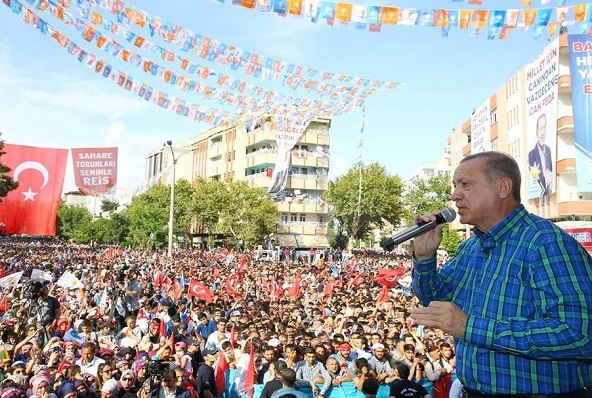Erdogan’s power challenged in snap election
The popularity of the powerful President is falling strongly. “None of the parties have mentioned religious freedom” in the campaign, says Turkish Protestant Pastor Ihsan Özbek.
ANKARA · 21 JUNE 2018 · 12:34 CET

The fast moves to turn Turkey into a political system with an even-stronger President might be turning against Recep Tayyip Erdogan.
The ‘reis’, as many call him, passed the test of the April 2017 referendum to win more control over the Parliament, the Supreme Court and budgetary policies. But even then, one year ago, his aggressive campaign only helped him to get 51.3% of the vote, losing in many big cities.
This year, Erdogan took another risky decision by calling a snap Presidential and Parliamentary election, advancing the vote 18 months.
Surveys now say the opposition could defeat the President’s Justice and Development Party (AKP) in the Parliament this Sunday, 24 June. Three opposition forces have joined in a coalition: the Republican People’s Party (CHO, Secular Social Democrats), the IYI Parti (IP, Conservatives) and the Saadet Partisi (SP, Islamists). They have real chances of winning the majority of seats and stand up to Erdogan for the first time in many years.
A HISTORIC MOMENT
“Erdogan’s position is not easy for the first time in the last 16 years”, Pastor Ihsan Özbek told Evangelical Focus. He has been serving as the President of the Association of Protestant Churches of Turkey for the last years.
It is not difficult to sense how the popularity of Erdogan “has been falling”. The President needs more than half of the votes to be re-elected, but some surveys only give him 48%. Behind him, Muharrem Ince (CHP) is the second strongst candidate, with 28%.
The failed coup in July 15, 2016 initiated a long ‘witch hunt’ against judges, civil servants, journalists, members of the opposition, and even Protestant Christians.
Astonishingly, 115,000 people have been detained or jailed in the last two years. Some were killed or tortured, and many are expecting long prison sentences.
PROTESTANTS AND THE ANDREW BRUNSON CASE
“We never supported such a coup. If that coup would have been successful, minorities would have bigger problems”, emphasises Özbek.
Fetullah Güllen, an influential political leader living in the US and founder of the Hizmet movement, is often portrayed as Turkey’s number one enemy. He is accused by the administration of organising the coup, and his followers have been catalogued as a terrorist organisation.
Andrew Brunson, a Pastor that served in a church in the Western Turkish city of Izmir for more than 20 years, faces life imprisonment accused of links with this terror group. Brunson has received the public support of the Turkish Protestant churches.
“Pastor Brunson is a part of the Evangelical Alliance and a sincere believer in Christ”, Özbek tells Evangelical Focus. “He has never had a relationship with the FETÖ terror organization nor with a secret service”.
Protestants in Turkey believe the “allegations against him are false and political”, Özbek says.
RELIGIOUS MINORITIES ARE NOT A PRIORITY
The religious liberties of minorities in Turkey have not been a talking point during the campaign in the last weeks. Only the Pro-Kurdish People’s Democratic Party of the Peoples (HDP) has spoken about religious minorities, “but they have their own problems”, says Özbek.
This includes the fact that a candidate and other leaders are imprisoned, accused of links with the Kurdish Workers Party (PKK), a movement involved in a long fight with the Turkish authorities.
So what are the hopes for Turkey’s future? “We are praying for a politically stable country which will have religious and political freedom”, Özbek concludes.
Published in: Evangelical Focus - europe - Erdogan’s power challenged in snap election
